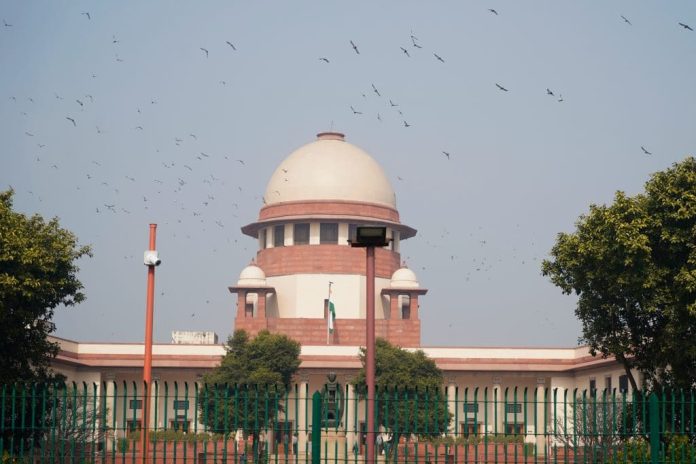New Delhi: The Indian Union Muslim League (IUML) has moved the Supreme Court, seeking to intervene in petitions challenging the constitutional validity of the Places of Worship (Special Provisions) Act, 1991. The Act prohibits altering the religious character of any place of worship as it stood on August 15, 1947, and bars legal proceedings to reclaim such sites.
The intervention application was filed by IUML Lok Sabha MP and senior leader E.T. Muhammed Basheer. The party’s plea emphasised the Act’s critical importance in maintaining communal harmony and upholding secular values enshrined in the Constitution.
Referring to recent communal tensions in Sambhal, Uttar Pradesh, the plea stated, “If the 1991 Act had been implemented in its true spirit, incidents like these could have been avoided, and the lives of six youth could have been saved.”
A three-judge bench led by Chief Justice of India Sanjiv Khanna is scheduled to hear the petitions on Thursday. The IUML has urged the Court to dismiss the challenges to the Act, arguing that its provisions align with India’s secular framework, which is a basic structure of the Constitution.
“The Act has been in existence for over three decades, and its primary objective is to safeguard secularism and promote communal harmony,” the application noted. It added that the legislation offers assurance to all communities that their places of worship will be preserved, thereby addressing historical injustices without fostering further discord.
The plea further highlighted the Supreme Court’s recognition of the Act in its Ayodhya verdict, which underscored its role in preserving communal harmony and reflecting India’s commitment to secularism. The IUML argued that since the law protects the constitutional principle of secularism, even Parliament cannot amend it.
The Places of Worship Act, enacted in 1991, has gained renewed attention amid legal and political challenges, with the IUML’s move emphasising its relevance in ensuring peaceful coexistence among all faiths in India.




